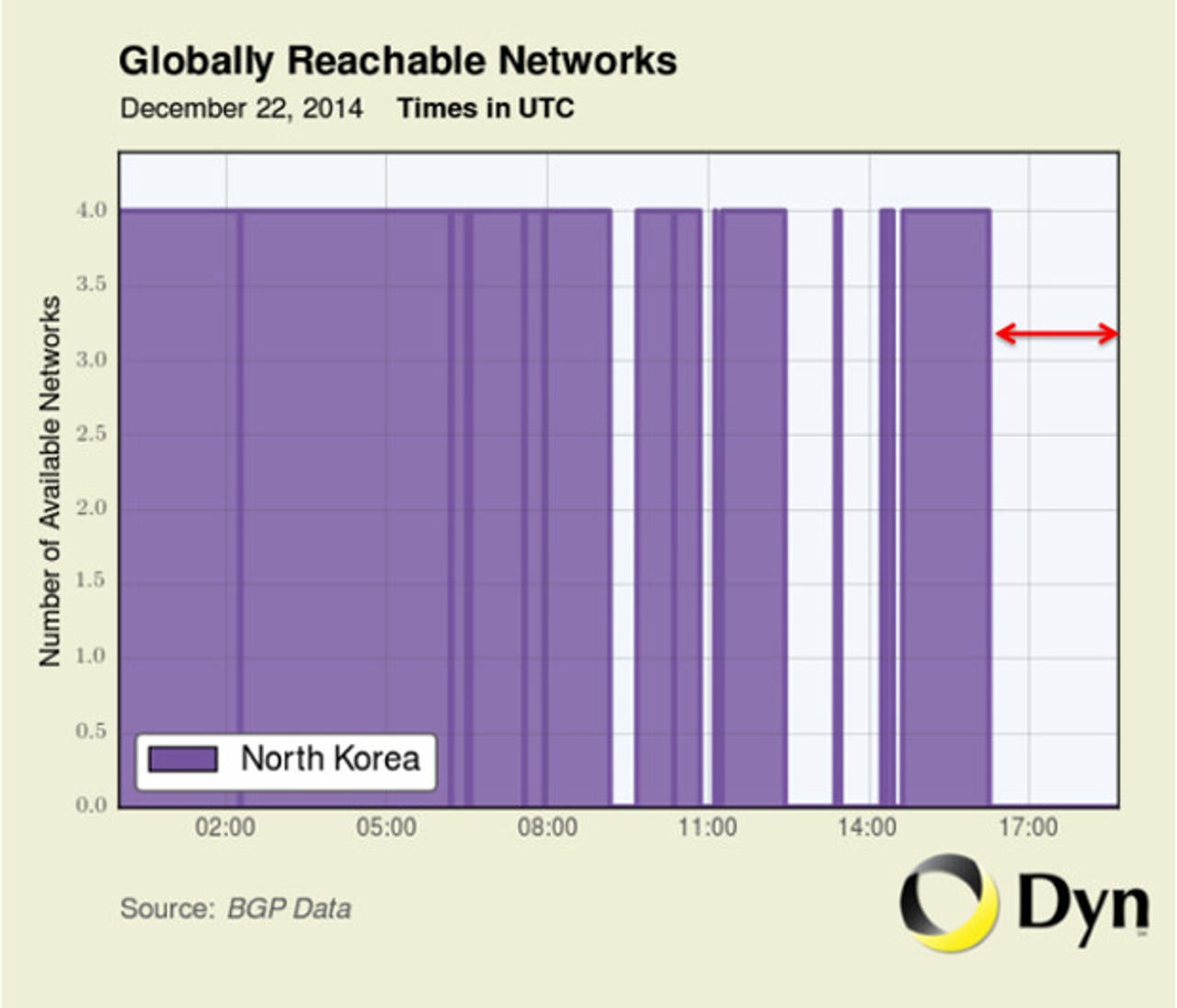North Korea's Internet is down for the count

In the aftermath of the FBI reporting that North Korea was behind the Sony hack attack, is it any surprise that North Korea's limited Internet has been kayoed? I don't think so.

According to reports from the Internet analysis company Dyn Research, formerly Renesys, "After 24 [hours]rs of increasing instability, [the] North Korean national Internet has been down hard for more than 2 hours." This comes on the heels of President Obama saying he had been weighing retaliatory responses that will be "proportional, but not necessarily noticeable." North Korea has denied any involvement in the attack.
Doug Madory, Dyn Research's director of Internet analysis said it was possible there was an innocent reason for North Korea falling off the Internet. But, "North Korea could be experiencing a DDOS (Distributed Denial of Service) attack."
Featured
CloudFlare, a Web performance company, told the New York Times succinctly that North Korea' Internet was "toast."
But Madory added that North Korea's Internet has always been flaky. Still, Dyn has never seen North Korea's Internet fail quite like this before.
It's also possible that North Korea, in anticipation of an attack, has taken its connection down itself.
North Korea has a cyber-war capability but its Internet is tiny and tightly controlled by the government. Known by the name "Kwangmyong," it's connected to the world Internet via a single Internet service provider (ISP), Star-KP. The entire network has a mere 1,024 IPv4 addresses and 18 Web domains. It also has no IPv6 addresses. It may well be the world's smallest national Internet. To connect with the rest of the world, it relies on China Unicom, a People's Republic of China ISP.
Related Stories;
- FBI says North Korea is 'responsible' for Sony hack, as White House mulls response
- Sony attacks launched inside North Korea, routed via Taiwan
- Sony attack linked to North Korea, theaters bail over terrorism threat
- A glimpse into the world of North Korea's hacking elite
- North Korea cyber warfare capabilities exposed